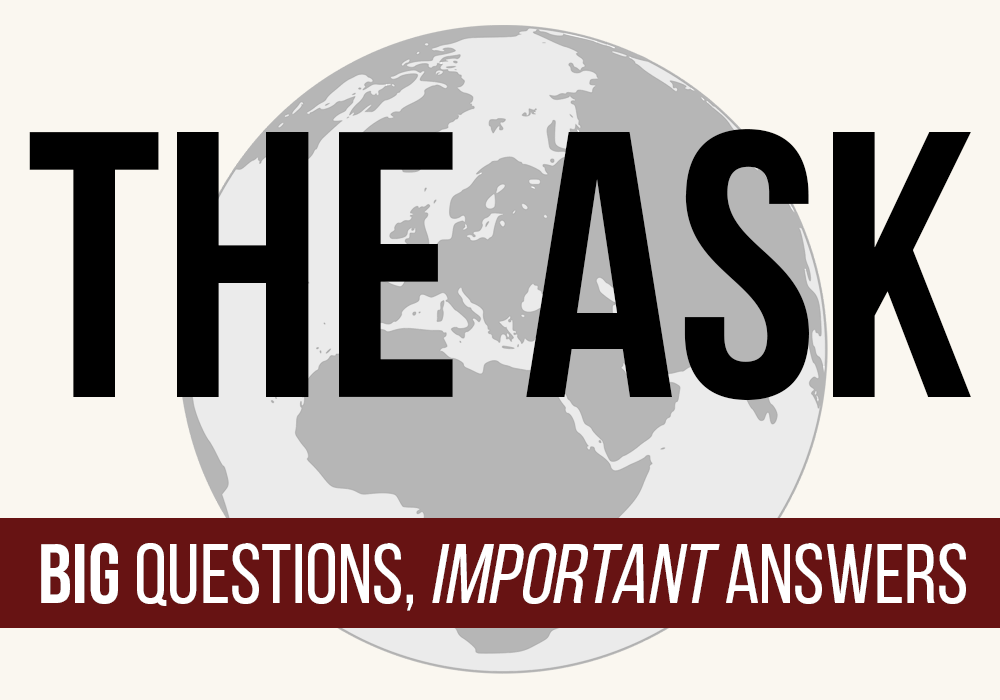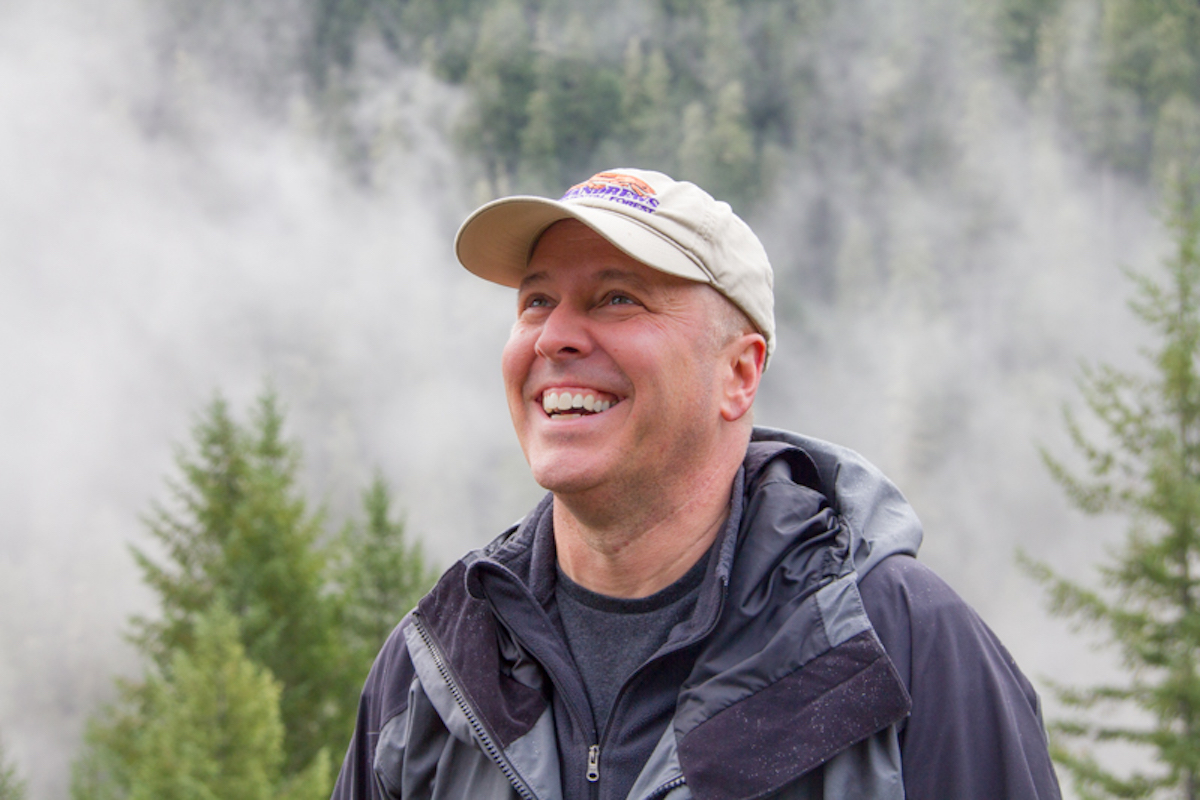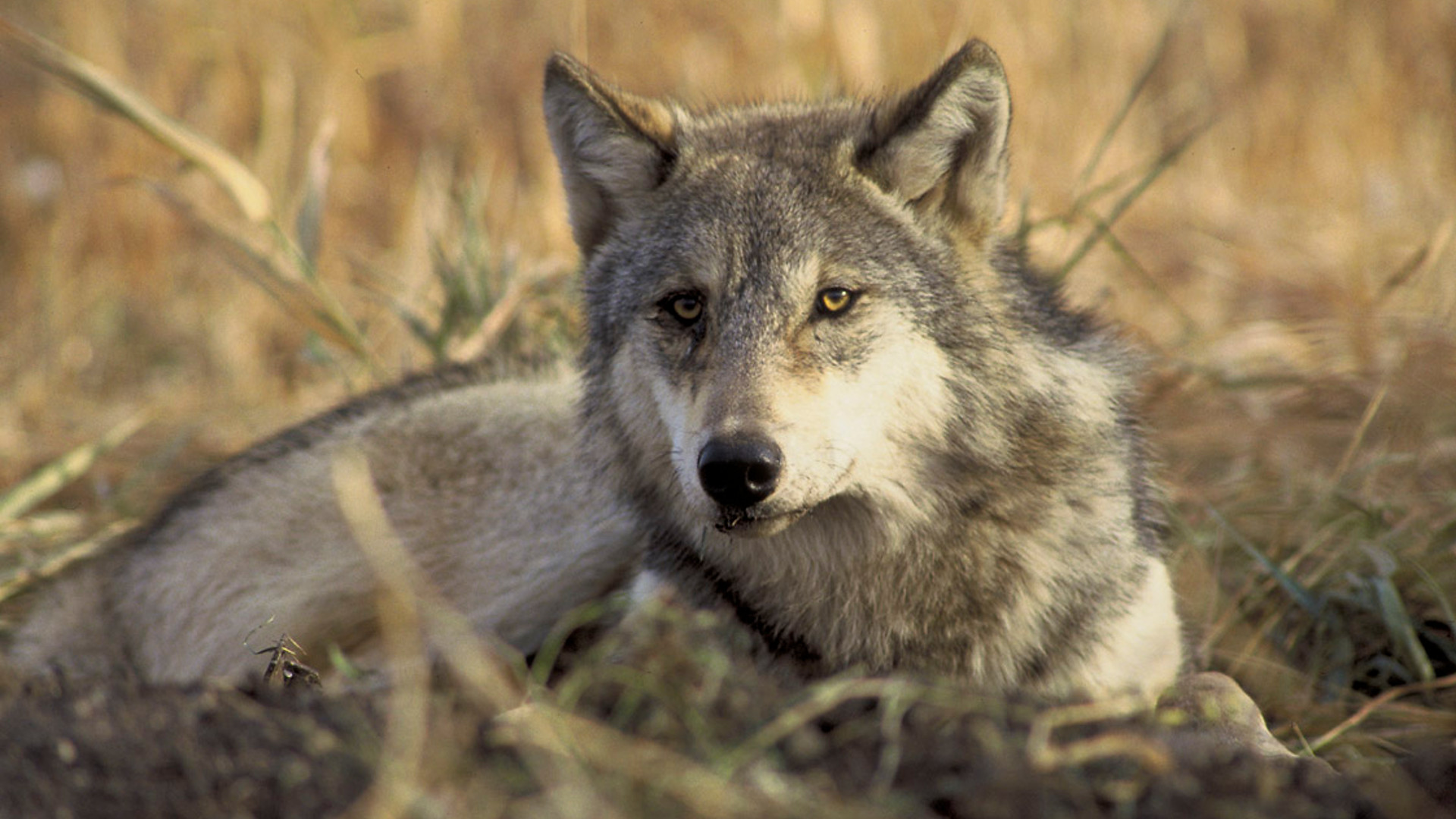What is it about wolves that drive so much passion — either to conserve them and rebuild their populations or, on the opposite end of the spectrum, to hunt them or even remove them from the wild?
 Answering that question gets to the heart of what it means to be human and what wolves mean to people, says Michael Paul Nelson, professor of environmental ethics and philosophy at Oregon State University.
Answering that question gets to the heart of what it means to be human and what wolves mean to people, says Michael Paul Nelson, professor of environmental ethics and philosophy at Oregon State University.
Nelson knows his wolves, and the issues related to their conservation. He’s the philosopher-in-residence and historian of the Isle Royale wolf-moose project, the world’s longest study of a single predator-prey system, as well as a noted researcher into trophic cascades, the effects on ecosystems caused by the introduction or removal of predators. Nelson also cofounded the Conservation Ethics Group and is the co-author or co-editor of several books, most recently Moral Ground: Ethical Action for a Planet in Peril.
As the federal government has once again takes aim at reducing wolf protections, The Revelator spoke with Nelson about some tough questions regarding wolf conservation — including what wolves mean to us and to the ecosystems in which they live.
You’ve approached wolves from a philosophical viewpoint. What do you feel this brings to the study of wolves that might have otherwise not been addressed?
I think those with philosophical training, or those with innately philosophical minds, see things (for example, patterns, assumptions, inferences, etc.) that others might not — in the same way that artists might see something through a different lens.
Human interactions with wolves is, at its core, the playing out of basic philosophical ideas about what wolves are, what humans are, and what an appropriate relationship with wolves (or nature for that matter) ought to be. When we speak of wolves — whether poorly or positively — we evoke philosophical and ethical baggage of which we are seldom aware. When we suggest policy or management with regard to wolves, we are building arguments based both on empirical or scientific claims, but also on values and norms. My job is to try to bring some measure of clarity to that entire process.
The on-again, off-again Endangered Species Act protection for wolves just moved toward off again. Is America prepared to ever fully accept protection for wolves?
There are at least a couple of philosophical or ethical issues here that might be driving this flip-flopping.
First, this is in part a fundamental disagreement over whether wolves are members of the moral community. Do they possess intrinsic value and deserve direct moral standing? If so, the standard for protecting them would be higher, and the willingness to delist them would be lower. Or are they valuable only as a means to some other end, possessing only instrumental value and not deserving of direct moral standing? If that’s the case, the standard for delisting them would be lower, and the willingness to delist them would be higher — and for some, perhaps, there would be no willingness to list them in the first place since they do not believe wolves are even instrumentally valuable.
Second, it is fairly obvious to me that we fundamentally do not understand what “endangered” means in the Endangered Species Act. There are a couple of confusions here: 1) An endangered species has an unacceptably elevated risk of extinction, but we don’t have a sensible agreement on “acceptable risk.” 2) In the special context of the Endangered Species Act, a species is endangered when it’s lost from a “significant portion of its range.” However, we don’t have a sense for what “significant” is. In other words, how much must humans have reduced range before we say that’s a problem and that species should have special protection?
I see every reason to believe that this flip-flopping will continue until we address these core ethical and philosophical issues. We seem either reluctant to do this, or profoundly incapable of doing it.
Even as Endangered Species Act protection is at risk, a new plan to restore the wolf population on Isle Royale has just been approved. What lesson do you think can be applied from Isle Royale to broader wolf conservation or policy efforts?

I think what we saw there, at least in part (and our research confirms this), is that people do not necessarily conflate the notion of a healthy ecosystem with the notion of non-intervention. There is reason to believe that, in the face of climate change, we recognize that human intervention into systems in order to secure what we think of as ecosystem health might be permissible, even mandated. Of course, this raises other interesting issues, like who among us is wise, humble, informed and compassionate enough to make such decisions about such interventions, and are our natural-resource programs creating such leaders of the future?
You’ve done a lot of work on the interactions between predators and their habitats, helping us to understand the trophic cascades caused by their loss or reestablishment. What do we still need to understand about the ecological value of wolves?
I worry that we are still a bit too naïve with regard to what a trophic cascade is, when it happens and when it does not, and what the reality of a trophic cascade implies.
Ecology is a science that attempts to maximize variables as it provides explanations for how the world works. When we engage in such an exercise — which runs contrary to so much science where we minimize or isolate variables of explanation — we inevitably can only provide answers that begin with “it depends.” So I think we struggle with some basic philosophy of ecology and science questions when we think about these things.
But I also worry that people jump too quickly from the perceived reality or non-reality of a trophic cascade (an empirical phenomenon) to statements about what we ought to do (a normative or ethical statement). Basic logic tells us that we cannot derive a prescription for action (an “ought”) solely from some set of facts of the matter (an “is”). Nothing prescriptive, therefore, follows from the fact of a trophic cascade alone. We have to make a value, normative or ethical claim as well.
I also worry (yes, I’m a worrier!) that we forget there are other reasons why wolves are valuable, worth protecting and worth caring about — for example, they have amazing life histories worthy of respect, they possess intrinsic value and they are direct relatives of our own domestic dogs — and that those values might be more powerful than arguments rooted in trophic cascades, which, after all, are still instrumentalist arguments.
Beyond trophic cascades, where do you feel the research opportunities are with wolves right now? What’s the next big question about them that we need to better understand or start to address?
I’m not sure I can answer that from an ecological perspective, but I think from a philosophical research perspective — and I hate to say this — that we’re not even very good at understanding what is an endangered species, as I mentioned above, and what it would take to even decide.
Note that I said “decide” and not “find out.” There’s an inherent judgment to make here — namely, what counts as an acceptable level of risk of extinction over how long a period of time has to be decided. This will be directly reflective of our assumptions about the moral status of wolves. This and a number of other really important philosophical (or mixed philosophical/ecological/social) questions or topics needing attention. I’m thinking of things like the use of CRISPR gene editing technology in a conservation context, assisted migration in the face of climate change, conservation triage, and a number of other critical conservation topics that require a deeply interdisciplinary approach.


